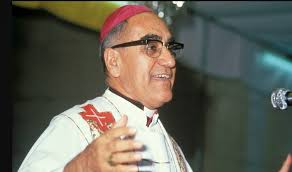 St Alban’s Episcopal Church Bolivar, Missouri Thursday, March 24, 2022 Oscar Romero(or, why we need bishops – real ones.)    “In less than three years, more than fifty priests have been attacked, threatened, calumniated. Six are already martyrs–they were murdered. Some have been tortured and others expelled [from the country]. Nuns have also been persecuted. The archdiocesan radio station and educational institutions that are Catholic or of a Christian inspiration have been attacked, threatened, intimidated, even bombed. Several parish communities have been raided. If all this has happened to persons who are the most evident representatives of the Church, you can guess what has happened to ordinary Christians, to the campesinos, catechists, lay ministers, and to the ecclesial base communities. There have been threats, arrests, tortures, murders, numbering in the hundreds and thousands…. But it is important to note why [the Church] has been persecuted. Not any and every priest has been persecuted, not any and every institution has been attacked. That part of the church has been attacked and persecuted that put itself on the side of the people and went to the people’s defense. Here again we find the same key to understanding the persecution of the church: the poor.” — Óscar Romero, Speech at the Université catholique de Louvain, Belgium, 2 February 1980.    Do we even need bishops? It’s a fair question. And clearly we don’t need them simply because we’ve always had them. We need them only if they are willing to lead the church into the deepest, realest, most hopeful and radical places of trust and obedience – which means to go there first. Some actually do. Oscar Romero was born in El Salvador in 1917, ordained in Rome in 1942, and made archbishop of San Salvador in 1977. When he became bishop, he was seen as a social conservative, and many people were bitterly disappointed. But as he assumed his role, and saw more of the violence by the right wing military government against the poor and those who worked with them, he changed. He became an outspoken and public critic of the Junta and even wrote to the US president to stop supporting that right-wing government. He tried to get the pope to critique priest who were not standing with the oppressed; he refused, and urged “unity.” What happened? Archbishop Romero chose to understand “unity” more biblically than the pope. He found within his Catholic theology and spirituality the truth of Paul’s letter. He no longer “regarded” anyone from a “human point of view” – but saw everyone as part of the body of Christ – suffering. This set him apart. “We regard no one from a human point of view; even though we once knew Christ from a human point of view, we know him no longer in that way.” And so what did he do? He began to broadcast his Sunday sermons all across the country. And up to 77 percent of rural Salvadorans listened – and well as half urban ones. And he followed up with a Monday broadcast. In those sermons, Bishop Romero told the country the truth about what was happening, including the names and numbers of people who were being killed, or “disappeared.” He urged the Junta to repent, and urged the people to stand firm for the poor and the marginalized, God’s chosen people. He did what a bishop is supposed to do. He spoke for the whole church and to the whole church and even to those who distorted or opposed the gospel. He worked to unify people in Christ, and against the violence, the political manipulation of the Church and the degradation of the poor. The bishop was clearly a threat. He was becoming well-known across Latin American and Europe and in the USA. The right wing ordered his death. He was murdered as he celebrated the Eucharist on March 20, 1980. He is one of ten 20th century martyrs depicted in statues above the great West Door of Westminster Abbey in London.  |

Categories:
Tags:
No responses yet